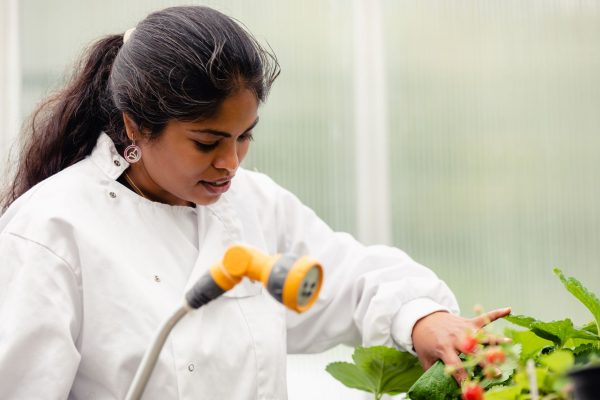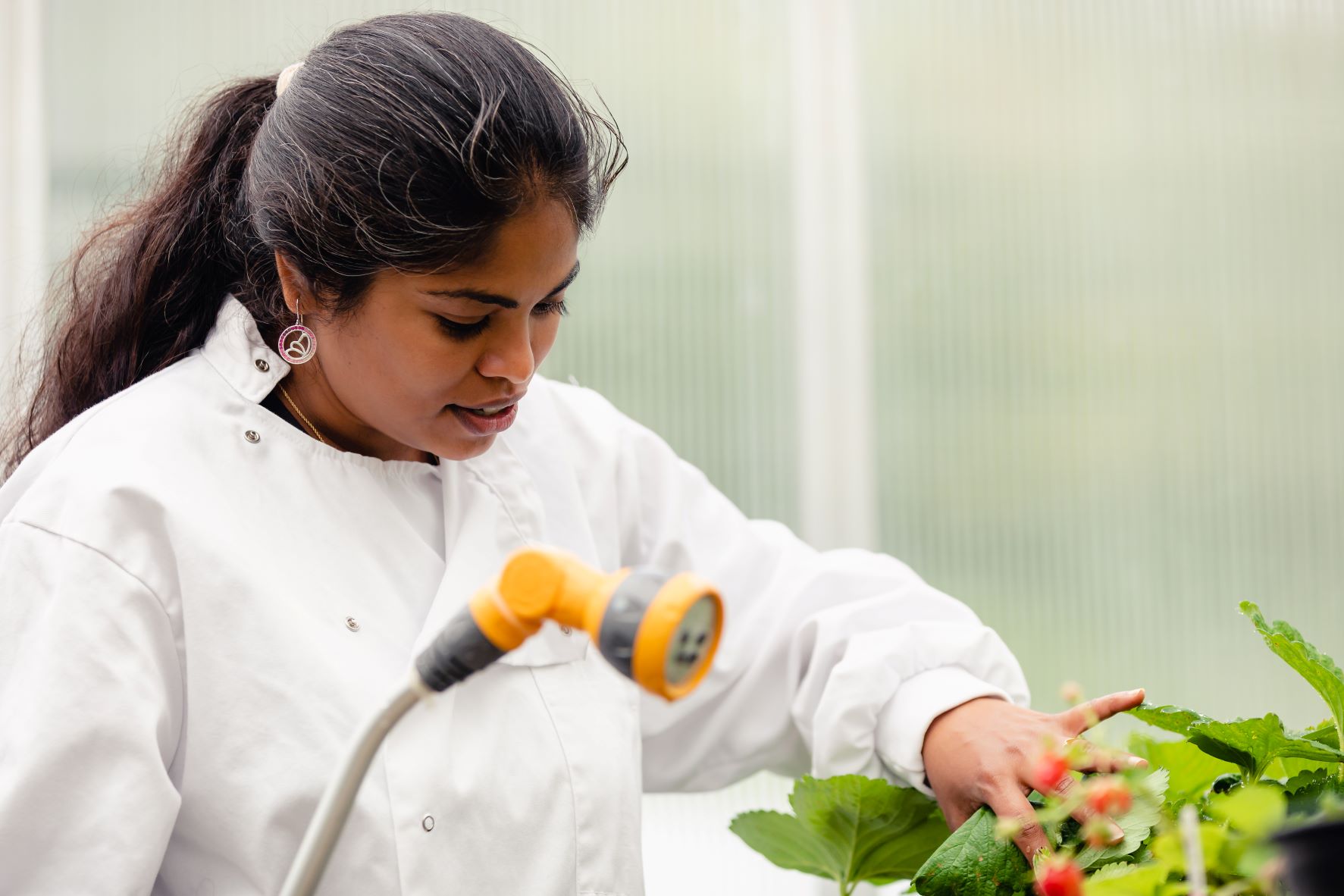
At FA Bio, we are focused on identifying superior microbes with the potential of being developed into microbial products such as biofertilisers, biostimulants and biocontrol.
As the R&D Lead at FA Bio, my mission is to take soil samples captured with our SporSenZ technology, identify active microbes with the potential to become bioproducts and assess their ability to control plant disease, promote growth and display fertiliser activities. We aim to help minimise agriculture’s environmental impact and restore soil health whilst sustainably increasing crop yields.
To discover potential bioproducts, we screen our identified and isolated microbial strains in both laboratory bioassays and glasshouses trials before being evaluated in the field. As part of our screening process, we are looking for microbial traits that promote plant growth, improve pathogen resistance, and help nutrient uptake.
We recently carried out a study on the plant growth promotion effect of microbial candidates collected from strawberry fields. The study was carried out with five beneficial candidates and was run over an 8-week period in a controlled environment to mirror commercial strawberry production conditions.
The first stage of the study was to test if the growth of the strawberry plants was negatively impacted by the application of the microbial candidates, which there were not. In fact, we saw the opposite, a positive impact on plant growth and fruit production. When compared with the control plants without application of FA-Bio’s candidates:
- Four of the five tested candidates increased the plants shoot weight, three candidates also improved the root architecture and increased the root weight

- All five of the candidates increased the number of branches and shoot length, with the best candidate increasing the overall plant biomass by up to 30%
- Four of the five candidates tested significantly increased the total yield of fruit production, with the most effective candidate increasing the cumulative fruit weight by 3-fold and by 2-fold, compared with a commercial microbial plant growth promoter
- The study proved that all five candidates improved plant growth and fruit yield under limited nutritional conditions and enhanced nutrient availability.
Commercial strawberry growers care about the weight of fruit produced by their plants, as this parameter creates the value of their harvest. However, by improving the plants’ architecture and promoting growth in the plant shoots and branches, we are also positively impacting the environment in which the crops are living.
Introducing microbial bioproducts to agricultural environments could improve the growth and development of plants and improve soil fertility, sustainably increasing crop yields year after year. The use of biofertilisers specifically can help improve photosynthesis, water uptake, and the solubility of nutrients. The availability of nutrients in the soil allows plants to grow. However, nutrients like phosphate can interact with other chemicals within the field, becoming insoluble to the plants. The tendency is then to add more fertiliser to increase the crop yields, but this ultimately increases the insolubility of the critical nutrients, leading to soil degradation.
As well as the environmental impact of chemical fertilisers, there is also an economic impact, with the price of chemical fertilisers spiking due to an increase in gas prices issues with logistics and carbon regulations. Bioproducts are a sustainable alternative that can reduce the economic impact and help protect those natural resources we rely on to produce chemical fertilisers, which are being heavily depleted.
As an industry, we need to find ways to close the loop on supply and demand to make agriculture more sustainable. FA Bio, as a team, we believe we can considerably contribute to this cause, enhancing agricultural productivity without impacting the environment.
Dr Vijayalakshmi Gunasekaran, R&D Lead at FA Bio


